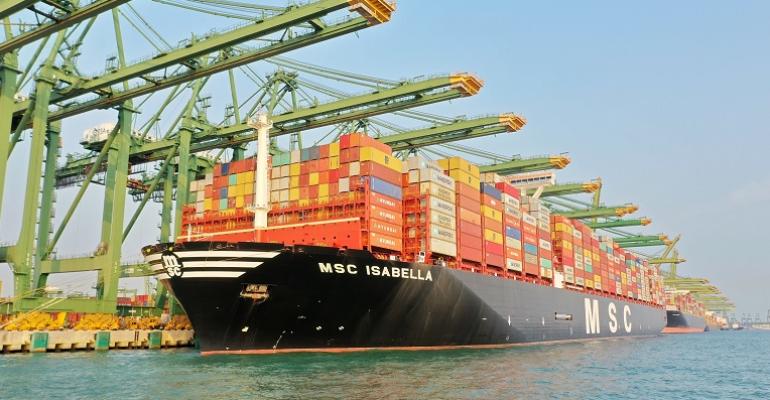Container shipping underpinned the gains but other sectors including car carriers, tankers and LNGs were also star performers.
Shipping’s stellar performance last year was the result of many factors but overall growth in energy shipping of around 4% was one of the fundamentals driving the ClarkSea index to a record $37,253 per day for the year.
Average earnings for tankers rose by more than 470%, with VLCCs scoring a record rise of 642% year on year. Medium-range product tankers scored well too, notching up a 370% increase in rates for a typical 12-year-old vessel – up from $6,740 a day in 2021 to an average of $31,775 last year.
In contrast, container rates underwent a ‘sharp correction’ over the second half of 2022, down from record levels at the start. Market reports suggest that rates are likely to weaken further and Clarkson notes that this will coincide with a rise in delivery volumes. Everything is relative, however: the box market is still firm in historic terms and the potential ‘re-opening’ of China could have a positive impact, Clarkson suggests.
Listen to the Seatrade Maritime Podcast shipping markets outlook 2023 episode
Despite record earnings in some sectors, the orderbook remains relatively low at only 10% of the fleet overall. Future capacity may also come under pressure from IMO’s ‘short-term measures’, Clarkson said, citing EEXI and CII regulations in place since 1 January and the European Union’s Emissions Trading System from next year.
“The market impact is uncertain but our modelling suggests supply-side impacts,” the analysts declared, revealing that new speed indices are to be put in place to monitor the impact of slow-steaming. Other uncertainties include the scale of energy-saving device retrofits, potential fleet renewal, and the tiering of charter markets, Clarkson said.
Copyright © 2024. All rights reserved. Seatrade, a trading name of Informa Markets (UK) Limited.
Add Seatrade Maritime News to your Google News feed.  |

